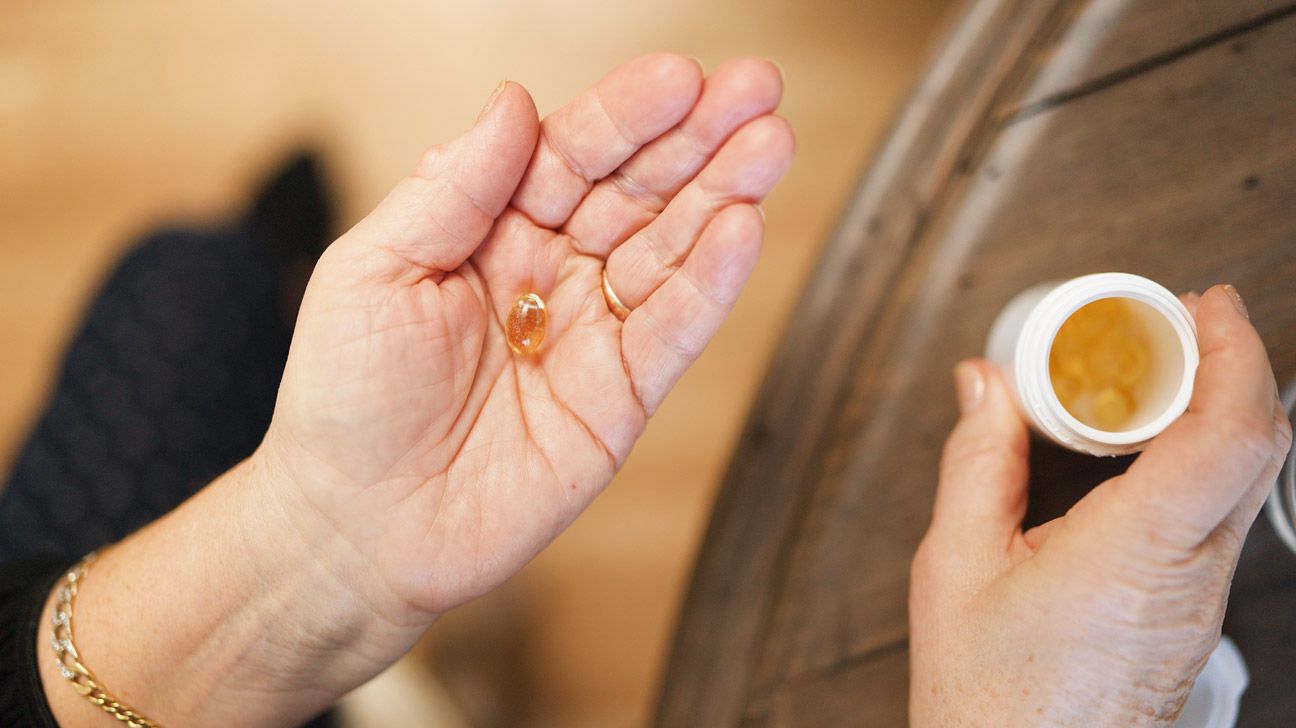Could taking vitamin D help with psoriasis? We look into the studies, as well as possible benefits and risks.

Plenty of people with psoriasis use different combinations of medications to treat the condition. For some, psoriasis symptoms may ease significantly just by raising their vitamin D.
Vitamin D, which your body can make when exposed to sunlight, has many health benefits that may help treat psoriasis.
Research has linked vitamin D deficiencies to psoriasis. While a deficiency doesn’t seem to cause psoriasis outright, it may affect the body’s ability to keep the skin healthy. This may increase flares.
Taking vitamin D in the recommended doses can help treat psoriasis. Here’s how.
Vitamin D has different health benefits that can help treat several types of psoriasis, including scalp psoriasis.
Topical oils and ointments for psoriasis containing vitamin D can also help treat flares. Vitamin D can slow the growth of new cells, so applying vitamin D oil directly to the flare can help thin the plaque.
There are different forms of vitamin D that you can use to help treat your psoriasis.
Oral supplements
You can take these in pill and liquid forms, and they’re easy to take on a daily basis. Healthcare professionals recommend taking
Foods
Instead of taking supplements, some people prefer to eat more foods that naturally contain vitamin D. These foods include:
- cheese
- egg yolks
- fatty fish like tuna
- fortified foods, including some cereals, orange juices, and dairy products
A blood test can help your doctor evaluate how much more vitamin D you need.
Ideally, your vitamin D level needs to be above 30 nanograms per milliliter (ng/mL). Taking oral supplements and changing your diet to include more vitamin D can improve your overall health and boost your immune system. This may help prevent flares.
Topical options
You can also go for topical options. Try getting more sun or using a sun lamp or light box to increase the vitamin D your body makes on its own. This is called phototherapy. But use this treatment carefully. Increased sun exposure, especially in excess, can raise your risk of skin cancer.
You can also use topical vitamin D oils that you can apply directly to your skin, especially on flare areas.
Topical oils may be more effective in treating flares that already exist. While topical treatments are soothing, they typically aren’t effective in preventing recurrence.
Vitamin D can help people with psoriasis. Still, it’s often
Some people may need topical medications with
The biggest risk of taking vitamin D is taking too much. Vitamin D in moderation is good for you, but taking too much can hurt you. It causes a condition called hypervitaminosis D, or vitamin D toxicity.
This condition can cause a buildup of too much calcium in the blood, which can cause frequent urination, weakness, and eventually kidney problems.
Typically, vitamin D toxicity results from excessive doses of vitamin D supplements. It almost never occurs from diet or sunlight exposure.
As long as you take vitamin D in moderation, you should be able to avoid vitamin D toxicity. However, your risk may increase if you have existing liver or kidney conditions.
Vectical and Dovonex are two commonly prescribed topical treatments for psoriasis, and both have vitamin D as their main ingredient. This suggests that while vitamin D might not be effective in treating psoriasis entirely on its own, it can certainly help.
If you’ve been taking or applying vitamin D as a psoriasis treatment and you haven’t seen any improvement within 1 month, follow up with your doctor to discuss alternative treatment options. They may recommend combining vitamin D with another medication for more effective treatment.
It’s best to contact your doctor immediately if you believe you’ve taken too much vitamin D. Symptoms can include frequent urination, back pain, weakness, dizziness, or severe fatigue.




